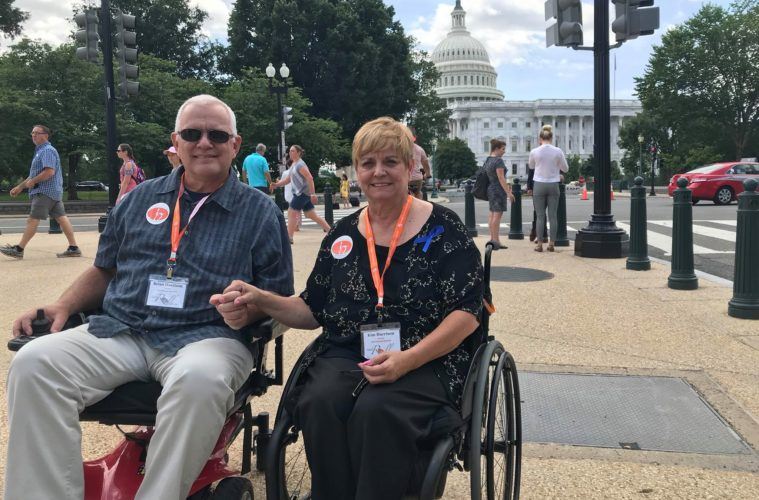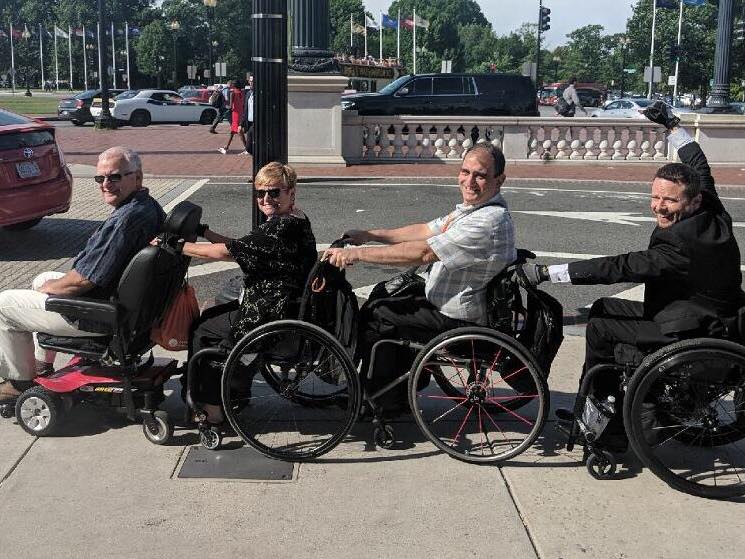 Cure Nation, Let’s recognize Kim Harrison for her passion and commitment to advocating for disability rights! Read how she’s using her voice to make positive change below.
Cure Nation, Let’s recognize Kim Harrison for her passion and commitment to advocating for disability rights! Read how she’s using her voice to make positive change below.
Kim Harrison, of the Atlanta area, has been an active advocate for disability rights for many years, both on a local and national level. She has Transverse Myelitis, drives an accessible vehicle, uses a power chair, and travels often with airlines, so she understands the needs of the disability community intimately.
She also understands that there is a lot to be done, and we’re the best advocates in the position to make positive change.
Raising Awareness for Transverse Myelitis in Georgia
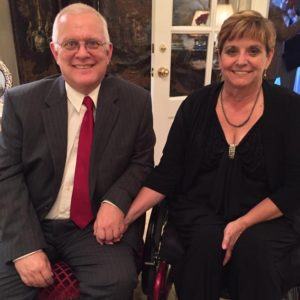
Kim and Brian Harrison
Transverse Myelitis (TM) is a rare disease, especially to those outside the mobility community. Several years back, Kim realized that if there was ever going to be more research and treatments for TM, more people had to know that it exists in the first place. So, she began contacting state representatives in Georgia to designate a recognized day of awareness.
“It wasn’t a simple task,” Kim recalls, “I had to write a lot of letters and petition a lot of people to get it passed.”
Her hard work paid off, though, and in 2012, the state of Georgia passed the resolution to make February 15th Transverse Myelitis Awareness Day. In addition, Kim is involved with organizing a rare disease awareness day each year, which is typically held the last day in February, and she’s also the leader of the TM support group for Georgia.
Kim Advocates for Enforcement of Accessible Parking in Her Community
One evening recently, when Kim came out to her car after a long day’s work, she discovered a motorcycle parked in the blue lines next to her van. As you may imagine, the bike was blocking Kim’s ramp and she was unable to get into her van. Unfortunately, this is all too common of an experience for people who require accessible vehicles.
The Georgia summer heat was beating down and Kim began to go through the usual steps to remedy the situation. She located the manager of the store and notified him of the issue. Eventually, the owner of the motorcycle came out – and didn’t seem to care about the inconvenience in the slightest. Kim says he didn’t appear to understand the problem, but finally, she was able to get in her vehicle and go home.
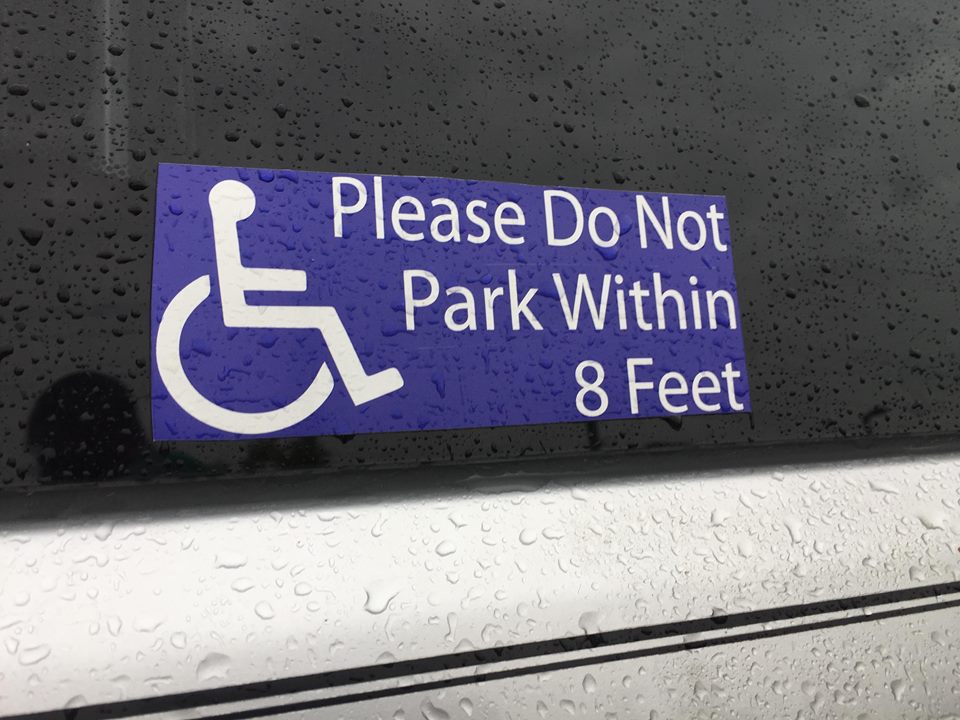
Despite displaying a clearly visible sticker on Kim’s accessible vehicle, people routinely block the space where her ramp deploys.
Two weeks later, however, Kim discovered the same motorcycle, in the same spot – blocking wheelchair access to the accessible parking spot.
This time, the owner of the bike was even more agitated and Kim pulled out her phone to capture the exchange on video. He began cussing and accusing Kim of stalking him. She finally had to call the police, which is when she stopped filming.
Later, Kim shared the video on social media and it quickly went viral. The motorcycle owner then took it upon himself to post something of a rebuttal video, in which he still seemed oblivious of his fault, but proceeded to share his name and address. He even wore his company work shirt for all to see.
Watch the videos on Facebook here.
When local news station WSB caught wind of the story, they reached out to Kim for an interview (see the story here). The same station had featured Kim in a story in the past about dumpsters blocking accessible parking. Because of the high visibility of the videos online and on TV, the owner of the motorcycle was issued a parking violation and let go from his job. But, while some justice seems to have been served, Kim knew it wouldn’t prevent the problem from happening in the future.
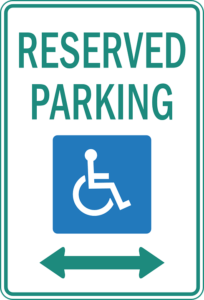 Sadly, she shares, the local law enforcement aren’t yet willing to address the increasing violations of accessible parking spaces. “I’ve been asking that our local police and sheriffs increase their patrols of public parking and to also consider utilizing an app, where citizens can report violations. But, their only solution is for me to call 911, in which case they tell me it’s not an emergency and that I’ll have to wait.”
Sadly, she shares, the local law enforcement aren’t yet willing to address the increasing violations of accessible parking spaces. “I’ve been asking that our local police and sheriffs increase their patrols of public parking and to also consider utilizing an app, where citizens can report violations. But, their only solution is for me to call 911, in which case they tell me it’s not an emergency and that I’ll have to wait.”
“The last time I called 911 when I was blocked out of my vehicle, it took 45 minutes for someone to respond – and meanwhile I’m sitting out in the hot Georgia weather.”
Kim attends her local town hall meeting every two weeks and sits in the front – and plans to keep doing so until the city decides to take responsibility and enforce the law. Allies in the community are beginning to support Kim’s efforts and are sharing accessible parking violations on the local Facebook page. Eventually, Kim believes, they’ll have to do something.
“Parking in handicapped spots is not an accident – it’s intentional. Especially the second time,” Kim says.
Disability Rights on a National Level: Kim Harrison Attends Roll on Capitol Hill
Kim recently returned from the Roll on Capitol Hill (ROCH) in D.C., where she met up with a new friends from Atlanta to fight for disability rights. ROCH is United Spinal Association’s annual legislative advocacy event that addresses issues that impact the health, independence and quality of life of individuals living with spinal cord injuries and disorders.
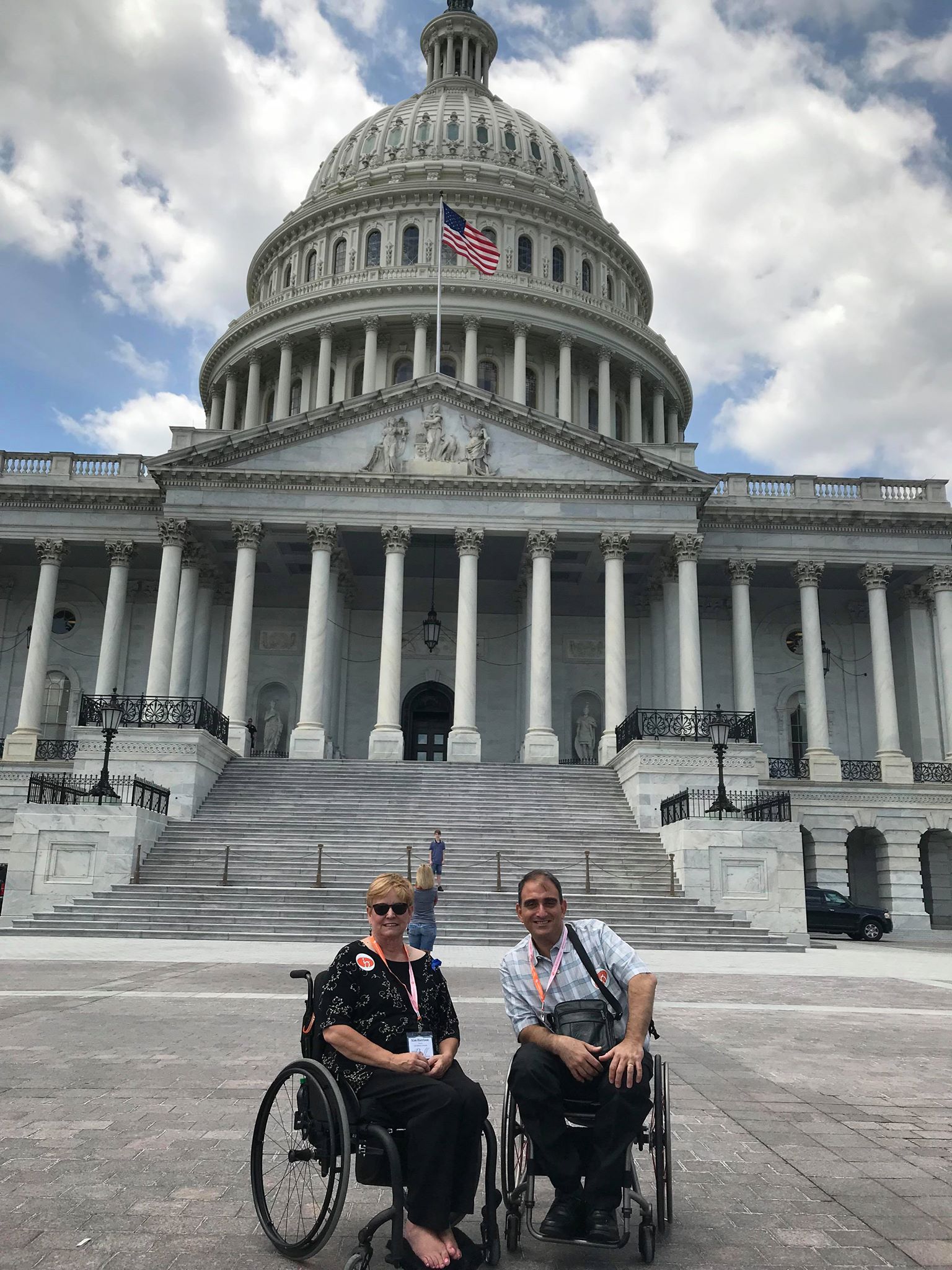
This year, Kim focused on two bills that will impact our community in big ways. The first was HR620, which will make it easier for businesses to slip under the guidelines of the Americans with Disabilities Act (ADA).
“The ADA has been around 28 years – they’ve had time to become compliant. They don’t need extra time when a violation is found. We wouldn’t be able to travel for work if we didn’t have the ADA. It allows me to get in and out of my car, go shopping, and spend my money.”
The second bill that Kim advocated for was HR5007, the airline accessibility act. “Basically, right now,” Kim explains, “if an airline damages a wheelchair or a handler drops someone, there is no accountability for it. In the past, I’ve had my chair destroyed by an airline, where it wasn’t even usable. I was without a good chair for 6 months.”
Kim feels the visits were mostly successful and effective, although we’ll have to remain vigilant.
“The members of Congress were very receptive – they understand these are civil rights issues and see that we’re the only civil liberties group out there still fighting for basic rights. They thought HR620 was helping us, but we pulled specific parts out to show them it wasn’t – and I think they understood. They told us they would dive into these issues further and were glad we came.”
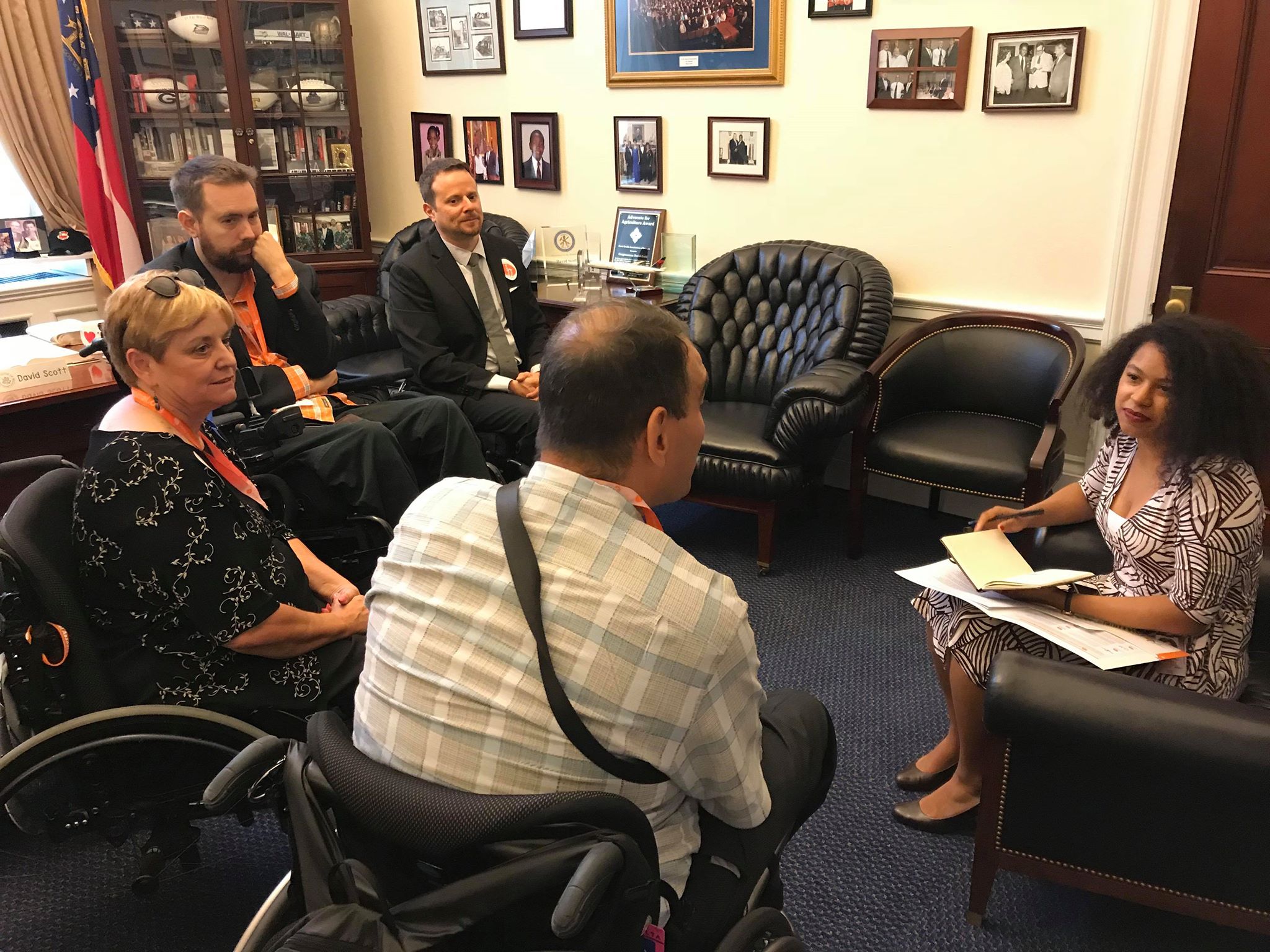
This was Kim’s second trip to D.C. to advocate for disability rights this year. In March, she traveled to The Hill to raise awareness for activity based therapy, which is proven to be extremely helpful for people with SCI. Every time she leaves D.C., Kim makes sure our Congressional representatives know that we will keep coming back.
Kim Reminds Us that Change Requires Action
“It’s hard not to get frustrated about it sometimes,” Kim shares, “people want to complain about all kinds of things, but they don’t actually want to do anything about it. You have to educate the legislators. They only know what they have heard and often only read part of a bill.”
“You’ve got two choices – you can sit on social media and complain about it, or you can get out there and make a change.”
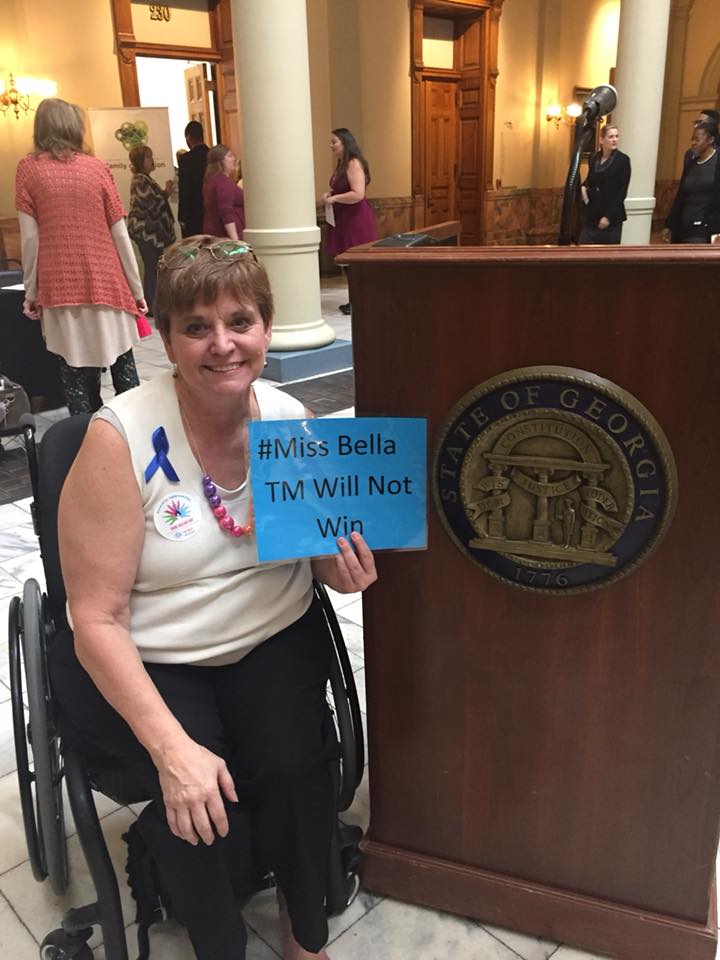 There’s no doubt, Kim will keep fighting for the disability rights and civil liberties as long as she rolls. We couldn’t be more proud of her! So how do YOU plan to get involved?
There’s no doubt, Kim will keep fighting for the disability rights and civil liberties as long as she rolls. We couldn’t be more proud of her! So how do YOU plan to get involved?
Consider Joining the United Spinal Association
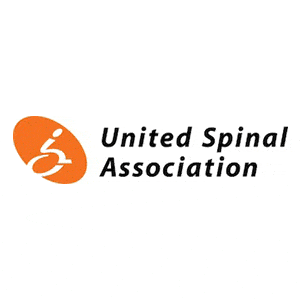 United Spinal is a national 501(c) (3) nonprofit membership organization formed in 1946 by paralyzed veterans and is dedicated to improving the quality of life for all Americans with spinal cord injuries and disorders (SCI/D), including multiple sclerosis, spina bifida, ALS and post-polio. It played a significant role in writing the Americans with Disabilities Act, and made important contributions to the Fair Housing Amendments Act and the Air Carrier Access Act.
United Spinal is a national 501(c) (3) nonprofit membership organization formed in 1946 by paralyzed veterans and is dedicated to improving the quality of life for all Americans with spinal cord injuries and disorders (SCI/D), including multiple sclerosis, spina bifida, ALS and post-polio. It played a significant role in writing the Americans with Disabilities Act, and made important contributions to the Fair Housing Amendments Act and the Air Carrier Access Act.
Membership is free and is open to all individuals with SCI/D. United Spinal was instrumental in getting New York City to create sidewalk curb ramps and accessible public transportation that has been used as a model for many United States cities. https://www.unitedspinal.org/
Cure Medical is a proud sponsor of United Spinal Association and Roll on Capitol Hill. Learn more here.
Enjoy Our Free Resources & Articles
CURE NATION is designed with you in mind, to offer assistance and education when you need it through a personal support program.
All of the information you find below and on our related social media pages is meant to guide you to places, topics and, resources that enhance your life, while also connecting you with a growing group of friends.
- Sign up for our free, CURE NATION e-newsletter to have our latest stories delivered directly to you, once a month.
- Get our FREE LIFESTYLE + TRAVEL BOOKS here.
- Have an idea you’d like to share? Let us know.
- Be sure to take a minute to meet our Cure Advocates too.
You may also enjoy:

